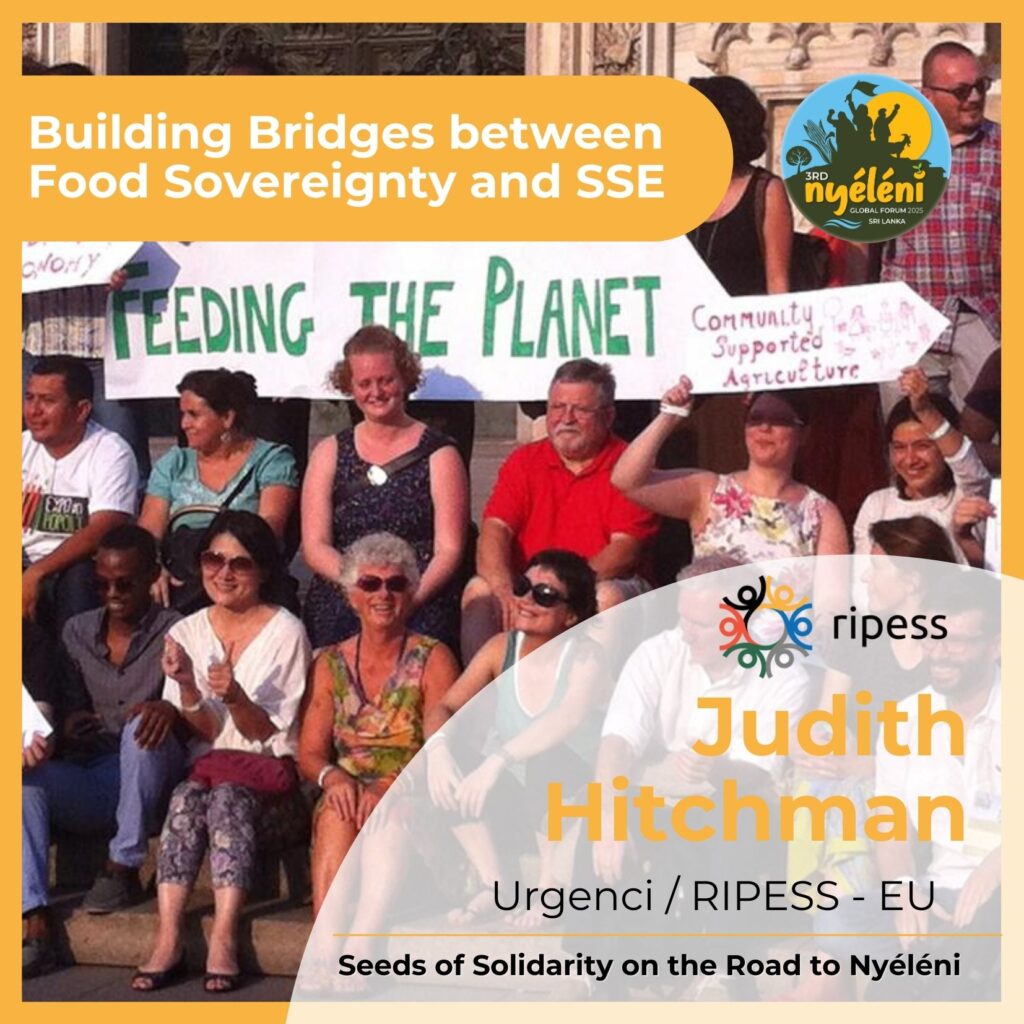
Since the late 1990s, Judith Hitchman began her path in the Social and Solidarity Economy (SSE) as an interpreter. Very soon, her work led her to encounter the food sovereignty movement and to become part of Urgenci, the International Network of Community Supported Agriculture. There she first served as cross-cultural advisor, then advocacy officer, and later, President.
Over time, Judith reached a fundamental conviction: to truly achieve food sovereignty, a major economic paradigm shift was necessary — and the answer lay in the Social Solidarity Economy (SSE). From that moment on, she devoted more than two decades to building the bridge between the two movements.
She first clearly expressed this within the European Nyéléni process in a paper for the ECA regional consultation with FAO (2011), and at the IPC General Meeting in 2013 as well as representing Urgenci in RIPESS Europe from its creation.
Her journey includes decisive contributions:
- Taking part in the FAO focus group led by Pablo Tittonell to determine the Elements of Agroecology, ensuring that SSE was formally included in the FAO Elements of Agroeocology.
- Progressively building on this in RIPESS Intercontinental policy and through the Civil Society and Indigenous Peoples’ Mechanism of the UN Committee on Food Security and Nutrition
- Working on input for the UN Task Force on Social and Solidarity Economy for its creation until 2024
- Gaining specific mention of the UN Declaration on SEE in the CFS policy document on reducing inequalities in 2024.
- Ensuring the full participation of RIPESS in the Nyéléni gathering in SRI Lanka that will bring together extended new partners in the food sovereignty process.
Today, as Emeritus President of Urgenci and co-coordinator of RIPESS Intercontinental, Judith continues to nurture this vision: uniting struggles, articulating movements, and consolidating SSE as an essential foundation of food sovereignty.
The challenge has never been small. Global neoliberalism has made this bridge a long and complex construction. Yet Judith insists: every victory, every space conquered in the international agenda, opens new possibilities for peasant communities, for CSA farmers, and for all those defending life against the market.
To Nyéléni, Judith arrives with a suitcase filled with lessons, alliances, and hope. Her story is that of someone who has managed to turn advocacy work into a collective journey toward a more just, solidary, and sustainable future.


